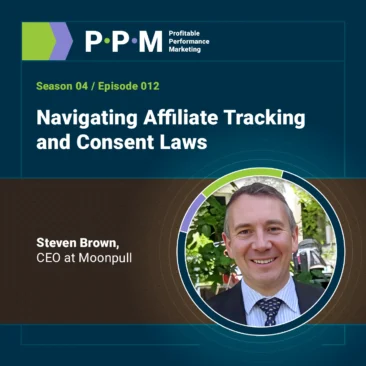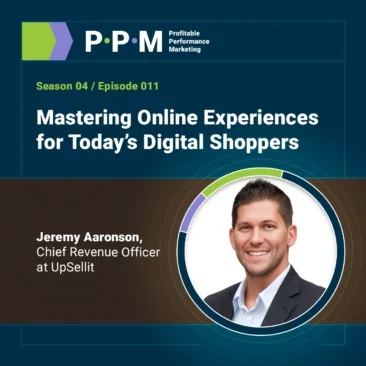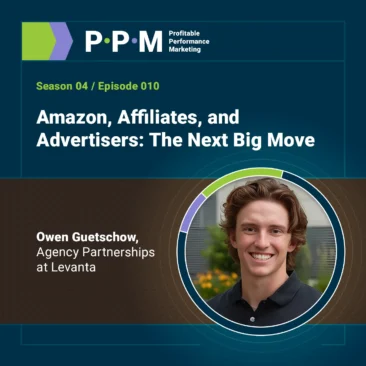Season 01 / Episode 003
Steve Denton – Industry Veteran and Exceptional Leader
Guest: Steve Denton - CEO at Ware2Go
Note: if you get only a 30 second preview, please log into your Spotify account, or find us on one of several other podcast services.
Summary
Possibly the best 1 hour and 10 minutes of my week. I’m so thankful that Steve was able to take the time with me to share his leadership lessons, view on performance marketing and how important it is to find your passion as you move from success to significance. I took 5 pages of notes on this call. Stick around to the end for a super funny story about Steve’s visit to Idaho when I worked at Coldwater Creek.
About Our Guest:
Steve, a longtime industry vet and exceptional leader, is currently the CEO of Ware2Go, a UPS company. Prior to joining Ware2Go, Steve was the President and CRO of Collective[i], a pioneer in AI and market leading platform for enterprise sales organizations. Previously he was GM and Vice President of Marketing Solutions at eBay and was responsible for all of eBay Enterprise digital and agency business units and integrated 9 acquired companies into one global marketing solutions leader.
He founded and is active with Goodness Now, a charitable organization that provides weekend meals to nutrition challenged elementary school children in Monmouth County, NJ.
Listen
Share
Notify
Top Tips
It’s important to manage employees’ fear of the unknown during these times. Brian explains that his youthful company has over-communicated and tried to stay in front of the situation as best as they can. They have ramped up the velocity on all-team meetings so people feel connected to the company. They showcase other people in the organization, not just the leadership team. They also have scheduled fun things to do every week, like virtual Family Feud or show-and-tell. The company also has prioritized the health & safety of their employees, saying “no rush” and making it completely optional to go into the office.
Affiliates and advertisers need to understand their value and set their economics. Brian explains that not all products are created equal, not all margins are created equal, and not all sales have the same level of desirability. He explains that in his business today, many of his clients sell through Amazon, among other channels. When he says, “set your economics”, it’s just a reminder that each channel is not created equal and that inventory isn’t equal. Understanding your capabilities as a publisher allows you set different economics for your SKU list or categories. He reiterates that this idea is just as important on the advertiser side.
Highlights
Leading a growing company through turbulence and unprecedented times involves mindfulness.
“High tide hides all stumps. Times like this involve focusing on the core things your business delivers value to. What are your core value drivers? Are you a vendor or a partner? You can’t be distracted. You must differentiate between seeds for growth and distraction. You must be as mindful about the things you aren’t going to do, as the things you are going to do. As a business leader, you are looking for reasons to say yes. Because when you say yes, things happen and when you say no, nothing happens – but, you must be mindful of these decisions. I tell young people all the time – ‘do the job nobody wants to do, because if you can do the hard stuff right, the easy stuff gets even easier.”
Confident people ask “Why?”
“You have to be a leader that leads from the front. Be very decisive and clear about what you are doing. And most importantly answer the “why.” Confident people want to know why, not just the what or the how. Communicate why things matter to you, the customers, the business and the industry. That always hold true. If your say/do ratio is low, you have no credibility. If people can see why it matters, they understand purpose”
Quotes
[11:50] – “As a two-year-old company, many of our employees have been here less than a year. We can do the work remote just fine, but it’s the social connection we have had to work hard on. We walked out the door on March 12, and are in no hurry to get back to the office. The hardest thing to manage is this connection, because they don’t have 5 or 6 years of company experience to lean on. How do you maintain the social aspect? It’s been interesting but it’s made us better, we have had to communicate more effectively. You don’t get the 5-minute drive bys in the office – everything is purposeful, and you lose things with that. I think it has prepared growing companies for the eventuality of leading people that don’t sit where you sit.”
[28:40] – “I always say to people – ‘do the things in your 20’s that you won’t want to do your 30’s, do the things in your 30’s you won’t want to do in your 40’s, and do the things in your 40’s you won’t want to do in your 50’s.”
[38:05] – “Payroll is normally your highest expense, so you have to be mindful of your hiring. But you also must be mindful of your talent. Is everybody contributing at a level that professional and personally rewards them? Are they contributing at a level that makes your company better? You shouldn’t be staffing for the company you are today, you should be staffing for the company you’re going to be two years from now. Are you hiring talent that can get you there?”
[1:01:33] – “This industry has been mainstream for 20 years now. I don’t know why we are still having the conversation about the value of the affiliate channel. There always has to be advocates in the industry that are shouting from the mountaintop. Many other forms of advertising have watch-dog groups. I don’t know who that is in the affiliate space right now. I know some individuals, but where is that voice? It’s not a criticism, I just don’t see the platform for that.”





